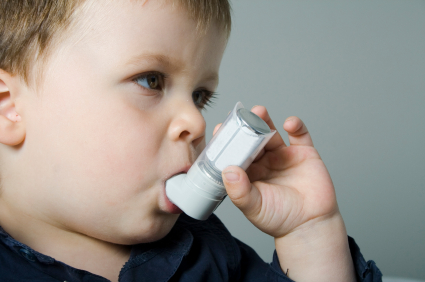- Home
- Editorial
- News
- Practice Guidelines
- Anesthesiology Guidelines
- Cancer Guidelines
- Cardiac Sciences Guidelines
- Critical Care Guidelines
- Dentistry Guidelines
- Dermatology Guidelines
- Diabetes and Endo Guidelines
- Diagnostics Guidelines
- ENT Guidelines
- Featured Practice Guidelines
- Gastroenterology Guidelines
- Geriatrics Guidelines
- Medicine Guidelines
- Nephrology Guidelines
- Neurosciences Guidelines
- Obs and Gynae Guidelines
- Ophthalmology Guidelines
- Orthopaedics Guidelines
- Paediatrics Guidelines
- Psychiatry Guidelines
- Pulmonology Guidelines
- Radiology Guidelines
- Surgery Guidelines
- Urology Guidelines
Children born by assisted reproduction have higher Asthma risk

A new study has found that-Children conceived by assisted reproductive technologies have higher Asthma risk. The result of the study showed an elevated risk of asthma among ART offsprings in comparison to spontaneously conceived offspring with time to conception >12 months, indicating a fairly reduced risk of asthma. The study has been published in Thorax which is a BMJ journal.
Pediatric asthma is the most common and significant chronic disorder among infants. It remains unclear what underlies the greater risk of asthma reported among children conceived by assisted reproductive technologies (ART).
In a not so common link for the disorder, a recent study has found a link between parental subfertility, Artificial reproductive technology and childhood asthma. Parental subfertility refers to any form of reduced fertility with prolonged time of unwanted non-conception,
Maria Christine Magnus et.al analyzed data from the national Norwegian health registries on 474,402 children born during 1998 and 2009 and on the Norwegian Mother and Child Cohort Study (MoBa) involving 75,797 children. The team linked data from a national birth registry and a national prescription database to identify children who had been born using ART and who also used asthma medication.
The data including information on fertility treatments, as well as time to conception, number and timing of previous miscarriages, and potential influences such as maternal age, asthma smoking during pregnancy, and weight.
The result of the study showed an elevated risk of asthma among ART offsprings in comparison to spontaneously conceived offspring with time to conception >12 months, indicating a fairly reduced risk of asthma in the latter. ART offspring had greater asthma risk. The sibling analysis yielded a similar association. Asthma risk also increased with a maternal history of early miscarriages (≤12 weeks).
The investigators found that children conceived with ART were up to 42% more likely to have asthma than children conceived naturally. When compared with children whose parents had spontaneously conceived after 12 months or longer, children conceived with ART were 22% more likely to have asthma.
From the findings, the authors concluded that both parental subfertility and characteristics related to the ART procedure itself might increase offspring asthma risk, although this needs to be confirmed in future studies, and further suggest that common mechanisms underlying parental subfertility and recurrent miscarriages might influence offspring asthma pathogenesis.
Assisted reproductive technologies (ART) generate a greater risk of adverse pregnancy outcomes and may also have long-term consequences for both the mother and child. In the past numerous researches which have been conducted to figure out the risk of asthmas among ARTs offspring but, the results have been inconsistent giving out both positive and null findings.
You can read the article by clicking on the following link
https://thorax.bmj.com/content/74/2/106

Disclaimer: This site is primarily intended for healthcare professionals. Any content/information on this website does not replace the advice of medical and/or health professionals and should not be construed as medical/diagnostic advice/endorsement or prescription. Use of this site is subject to our terms of use, privacy policy, advertisement policy. © 2020 Minerva Medical Treatment Pvt Ltd